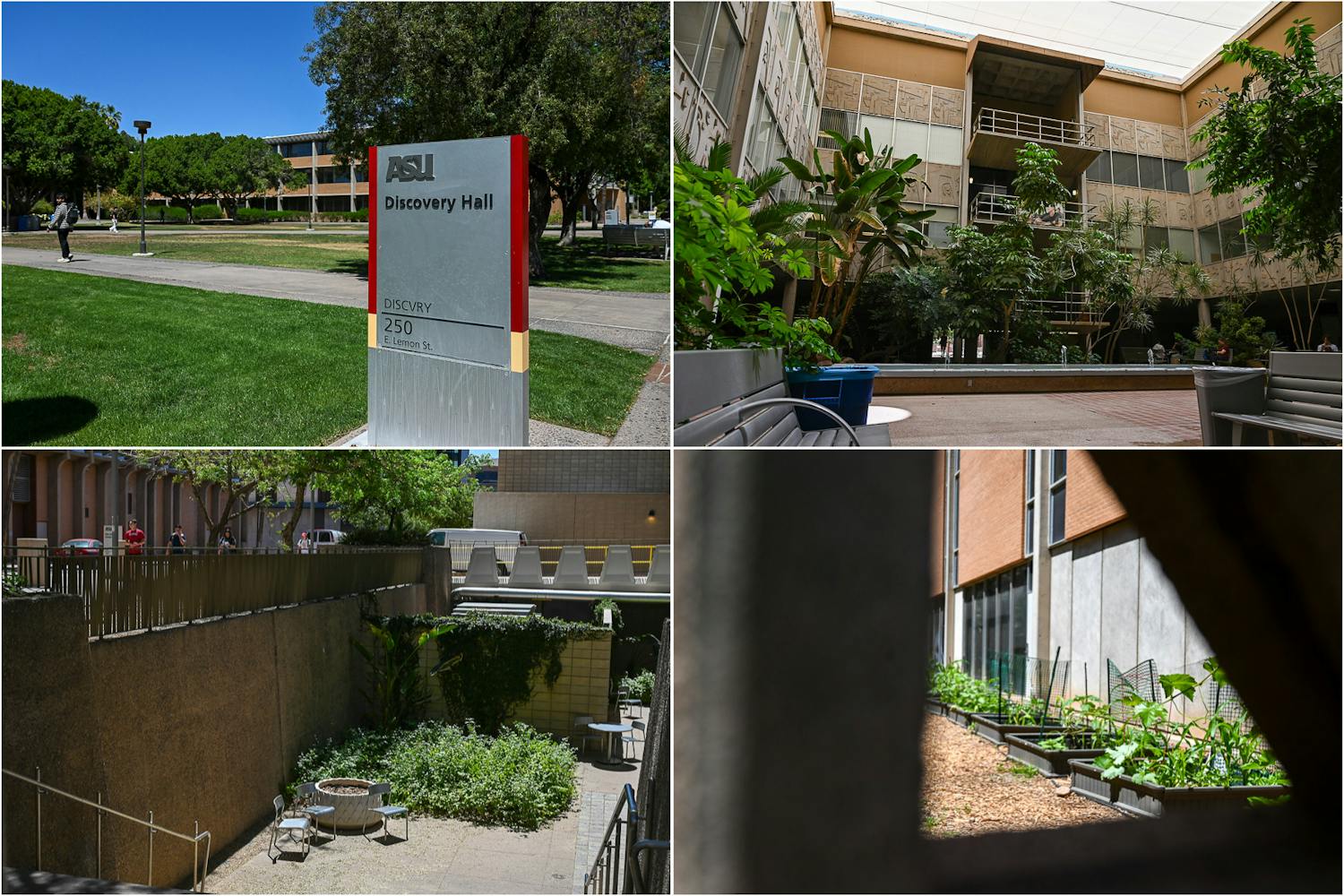Since ASU workers formed a union chapter last December, it has written letters on campus and state issues and launched social media campaigns, but has yet to receive recognition from the University administration.
Shortly after the administration unveiled its plans for the Spring 2021 semester, including the cancelation of spring break, faculty members and on-campus organizations announced they would join the United Campus Workers of Arizona Local 7065, a part of the Communications Workers of America, a union representing over 700,000 workers in the U.S., Canada and Puerto Rico.
In a meeting with The State Press on Feb.15, ASU President Michael Crow said the communications he had received on behalf of the union were not signed with names, and thus anonymous.
"I think that it's a good idea for people to gather together and advance their interests in some sort of a collective way, but in terms of unionization at this institution, I think I've seen two notes from people but they're anonymous," Crow said. "And so I don't even know. You know, I didn't even know who they are, what it is."
"We've gotten some communications from the group that calls itself the union, but they haven't put any names on it," Crow said.
Although the union has yet to receive a response from the University, the group is starting up multiple campaigns.
"Currently, we're developing campaigns to address rising health care costs, ensure all workers are paid living wages that are adjusted for cost of living, protect the health and safety of all, and create equitable working conditions," said Jackie Young, library information specialist senior at the Downtown Phoenix campus and press secretary for the union.
Many of the union's priorities are in response to changing conditions due to the pandemic.
The University's management of the COVID-19 pandemic has fallen under scrutiny in the past, setting the stage for other organizations like the ASU Community of Care Coalition, formed in response to the University's handling of the COVID-19 pandemic.
READ MORE: 'Most of us are really, really suffering': Students, faculty say semester was unsuccessful
"Our main focus is creating safe and secure working environments, particularly in the light of the pandemic," Young said.
The union has vocalized its concerns about returning to in-person instruction while the community remains at a high risk of COVID-19.
"We asked specifically to extend the vaccination eligibility to all staff, student workers anyone basically who was required to be on campus and to interact with people in person," said Laurie Stoff, an honors faculty fellow at Barrett, The Honors College.
The University expanded vaccine eligibility to include community assistants and more than 11,500 others, not just faculty as initially announced.
Stoff said members of the chapter's organizing committee, like herself, were inspired by the actions of workers at UA, who unionized in August 2020. With the help of its political and legislative action committee, the union hopes to advocate for measures toward an equitable workplace, she said.
Arizona is a right-to-work state, meaning workers have the right to join a union, or not to, and cannot be fired for making either choice. But an employer may fire an employee at any time without notice, something the union is eager to change.
One initiative the union is fighting for is the adoption of "just cause" termination at the University, which would require employers to provide a reason for termination.
The union has also used its platform to take a stance on social justice issues.
A letter signed by the chapter called on Maricopa County Attorney Allister Adel and others to drop criminal charges against those arrested during the summer's Black Lives Matter protests.
"We want to see systemic racism eliminated. We want to see gender inequities eliminated. I sincerely believe that Crow does too," Young said. "We don't necessarily see ourselves in an adversarial position with relation to President Crow and the University administration. Rather, we're dedicated and committed employees."
As a "wall-to-wall union," membership is open to all ASU employees, including student workers and both contingent and tenured faculty.
"We think it's very important to flatten the hierarchies and remove the divisions between employees because all workers are important — regardless of their ranks," Stoff said. "We absolutely value everyone who works at ASU, and all of their labor is important to ensuring that the university functions."
Matt Simonton, an associate professor of history at the School of Humanities, Arts and Cultural Studies, joined the union last semester.
He said it's important for students to know "their instructors come from a range of hiring positions and various degrees of job security."
"It's often easy to overlook what's going on behind the scenes," Simonton said. "Some people are working so hard, and yet they don't receive the same salary and benefits as others."
Salaries across different faculty members vary greatly on title and position, data compiled by The State Press in an ASU employee salary database shows.
After receiving tenure in 2019, Simonton said he felt as if he had "won the academic lottery."
"We are happy that ASU really didn't need to furlough or lay off workers during the crisis, but I think the crisis really brought to head a lot of these longstanding issues," Simonton said.
Union members said they will continue to advocate for increased support for ASU students and faculty of color through equal pay, fair hiring practices and increased financial and health resources.
"We want ASU to be the best possible place it can be," Stoff said. "Creating the best possible working environment at the university is essential because our working environment is also our students' learning environment."
Reach the reporter at sreyes23@asu.edu and follow @r_salma_ on Twitter.
Like The State Press on Facebook and follow @statepress on Twitter.
Continue supporting student journalism and donate to The State Press today.




